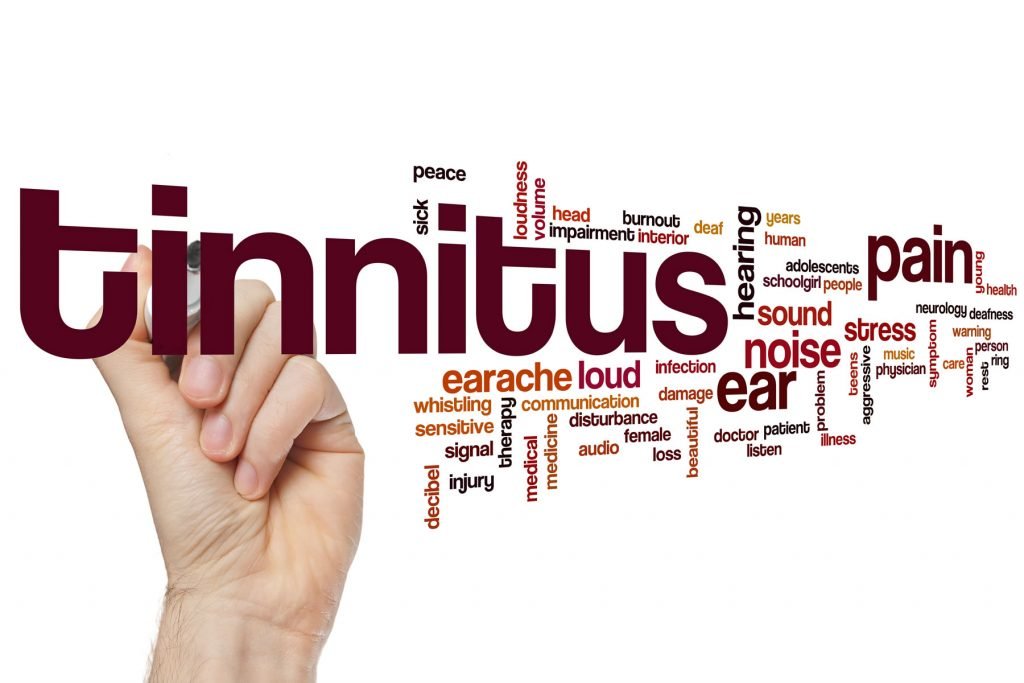 You hear it (tinnitus), feel it (pain), see it (visual delusions). But you probably don’t have to have these experiences.
You hear it (tinnitus), feel it (pain), see it (visual delusions). But you probably don’t have to have these experiences.
23 years ago I woke up with tinnitus. 70-80 dB of h*ll. Tinnitus Pain!
Talking with a dozen doctors and reading tons of medical literature boiled down to one thing: You are stuck with it. Get used to it.
Not possible. There was NO way I could live with the jet engine 24/7. In addition to medications and a whole slew of lifestyle changes, I started studying the brain. I got caught up by buying every textbook I could find on neurology, psychobiology, and neurobiology.
I’ll tell you one thing: We know 100 times more about the brain today than we did 12 years ago, but…the doctors still tell people there is nothing that can be done.
They tell that to people who taste metal, see delusions, have schizophrenia (paranoia w/delusions), feel chronic pain and have the nightmare of them all: tinnitus. And they are wrong.
It became clear that the brain has a “plasticity” to it. No, you can’t reshape it like a piece of clay or silly putty, but the analogy was useful as I fought through the daily listening to the emergency broadcasting system.
The fact that the brain has this sort of “ability to change” at the cellular level was useful in constructing ideas to get rid of the tinnitus. Lots of the ideas failed. Some helped. Eventually, it worked.
The research now out confirms that most people’s tinnitus is generated and “heard” in the brain, not the ear. Chronic pain doesn’t need to be chronic because the cells that store the chronic pain can be changed, and so on. None of this is easy or even simple. It takes a pretty complex set of changes to get the brain to not pay attention to tinnitus and then to simply not remember it. It takes time.
Tinnitus Pain – There is Relief
I’ve helped a lot of people accomplish this. Thousands who suffer from tinnitus. Fewer with chronic pain (like fibromyalgia). None of the standard methods of psychotherapy, hypnotherapy or any therapies worked. But by making changes to what actually changes what cells record, turned out to work.
Phantom limb pain experiences were the clincher for my persistence. Just the concept that someone could have a hand that burned or hurt or both…and the hand had been blown off or shot off 20 years before…that told me that it was possible to reverse-engineer the sensation, the perception and change it.

Today, this piece of research was released and it helps to explain in logical fashion what I discovered 18 years ago…but only could guess as to why…
Scientists have made the first recordings of the human brain’s awareness of its own body, using the illusion of a strategically-placed rubber hand to trick the brain. Their findings shed light on disorders of self-perception such as schizophrenia, stroke, and phantom limb syndrome, where sufferers may no longer recognize their own limbs or may experience pain from missing ones.
In the study on tinnitus pain, published today in Science Express online, University College London’s (UCL) Dr. Henrik Ehrsson, working with Oxford University psychologists, manipulated volunteers’ perceptions of their own body via three different senses – vision, touch and proprioception (position sense).
They found that one area of the brain, the premotor cortex, integrates information from these different senses to recognize the body. However, because vision tends to dominate, if information from the senses is inconsistent, the brain “believes” the visual information over the proprioceptive. Thus, someone immersed in an illusion would feel, for example, that a fake limb was part of their own body.
In the study, each volunteer hid their right hand beneath a table while a rubber hand was placed in front of them at an angle suggesting the fake hand was part of their body. Both the rubber hand and hidden hand were simultaneously stroked with a paintbrush while the volunteer’s brain was scanned using functional magnetic resonance imaging.
On average, it took volunteers 11 seconds to start experiencing that the rubber hand was their own. The stronger this feeling, the greater the activity recorded in the premotor cortex.
After the experiment, volunteers were asked to point towards their right hand. Most reached in the wrong direction, pointing towards the rubber hand instead of the real hidden one, providing further evidence of the brain’s re-adjustment.
Dr. Henrik Ehrsson says: “The feeling that our bodies belong to ourselves is a fundamental part of human consciousness, yet there are surprisingly few studies of awareness of one’s own body.”
“Distinguishing oneself from the environment is a critical, everyday problem that has to be solved by the central nervous system of all animals. If the distinction fails, the animal might try to feed on itself and will not be able to plan actions that involve both body parts and external objects, such as a monkey reaching for a banana.
This study shows that the brain distinguishes the self from the non-self by comparing information from the different senses. In a way you could argue that the bodily self is an illusion being constructed in the brain.”
Disorders such as schizophrenia and stroke often involve impaired self-perception where, for example, a woman might try to throw her left leg out of bed every morning because she believes the leg belongs to someone else. Misidentification or unawareness of a limb arising from damage to the premotor cortex from a stroke is not uncommon.
Phantom limb syndrome is a disorder which can arise after amputation. Remedies that trick the brain into believing the limb has been replaced, for example by using a mirror to reflect the opposite healthy limb onto the amputated limb, exploit the brain’s mechanism of self-perception.
Learn More About Tinnitus Pain Reduction (Ear-ringing)
[content_block id=1820]



